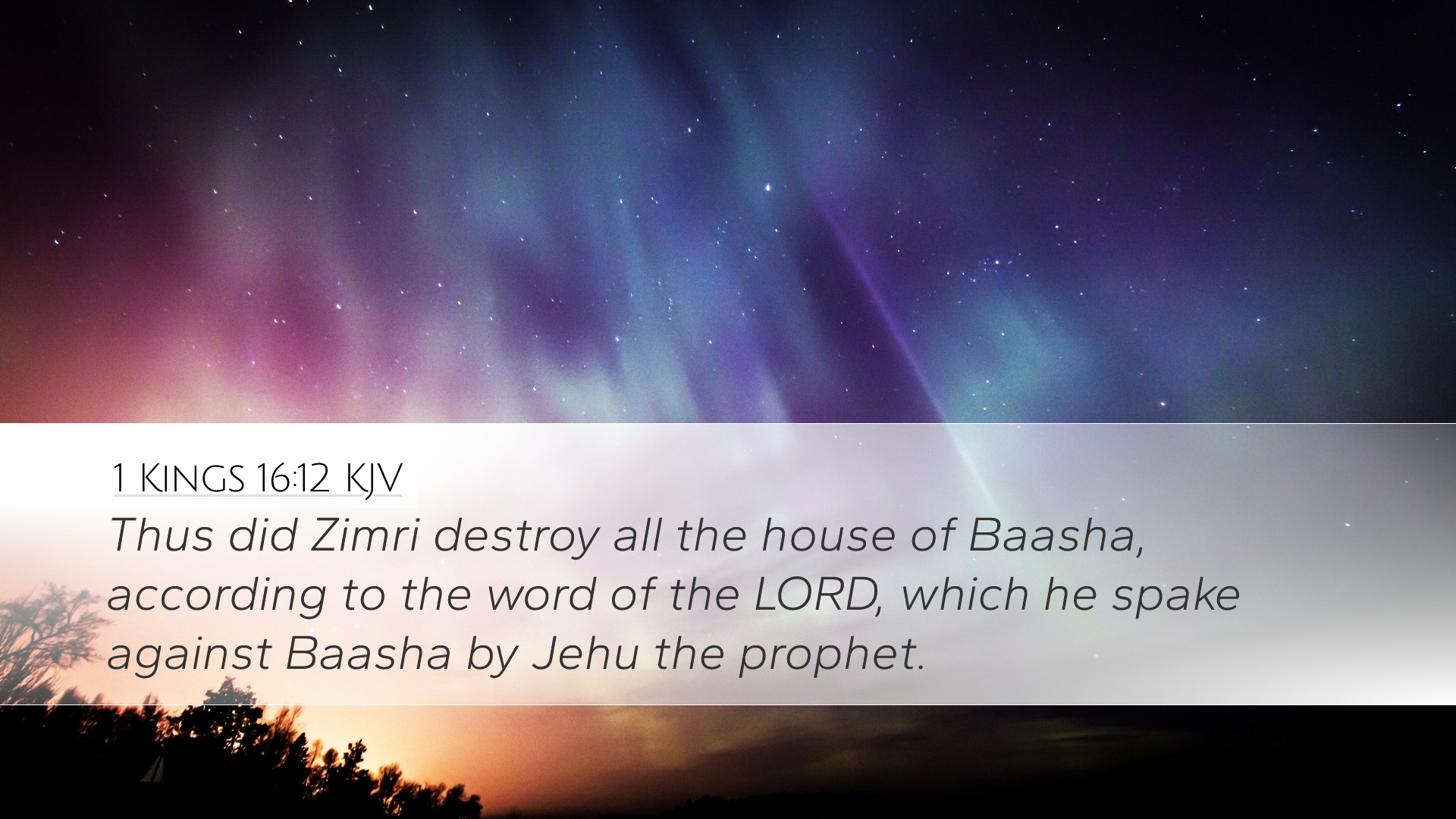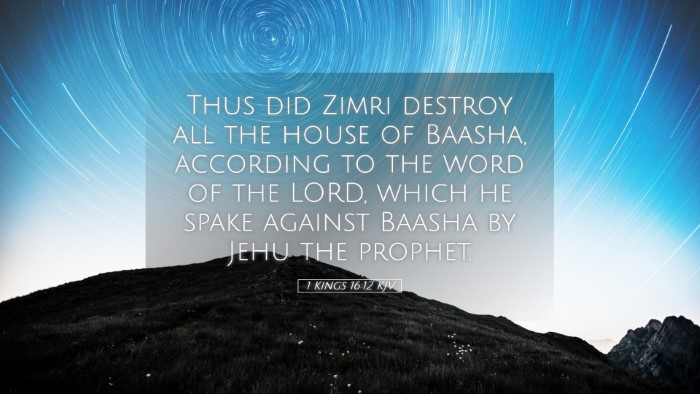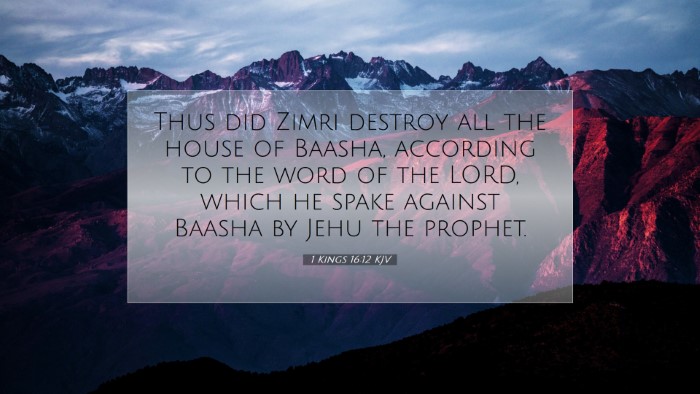Commentary on 1 Kings 16:12
Verse: “And Zimri reigned seven days in Tirzah: and the people were encamped against Gibbethon, which belonged to the Philistines.”
Introduction
The narrative of Zimri's brief reign provides profound insights into the nature of power, rebellion, and divine sovereignty. Throughout the books of Kings, the rise and fall of kings are consistently depicted, revealing both the human struggle for authority and God's overarching control over history.
The Context of Zimri’s Reign
The account in 1 Kings 16:12 highlights the tumultuous period of Israel's monarchy marked by instability and moral decay. As explained in Matthew Henry's commentary, the backdrop for Zimri's brief rule illustrates the chaos following the death of King Elah. Elah's rule was characterized by idolatry and the disregard for God's covenant, setting the stage for God's judgment through civil strife.
Analysis of Key Terms
- Zimri: Zimri, an officer of Elah, took advantage of the king's revelry to assassinate him. His rapid rise mirrors the political volatility of the time.
- Seven Days: The brief duration of Zimri's reign signifies not only his treachery but also God’s disapproval. Adam Clarke notes that this serves as a warning regarding the consequences of immorality and treason against divinely appointed authority.
- Tirzah: Tirzah was the royal city of Northern Israel. The choice of this city as a place of power underscores the established lineage and the ongoing struggle for legitimacy in leadership.
- Gibbethon: The mention of Gibbethon, a Philistine city, contextualizes the ongoing conflict between Israel and surrounding nations. At the time of Zimri's reign, the Israelites were besieging Gibbethon, reflecting both military strife and the need for unity in the face of external threats.
Theological Themes
Divine Sovereignty
One key theme in this passage is the sovereignty of God over political affairs. Even in moments of seeming chaos, such as Zimri's assassination of Elah, God remains in control. Barnes highlights that no leader can rise apart from God's permission, emphasizing that the ultimate authority is divine, even amidst human rebellion.
Judgment and Consequence
The swift demise of Zimri echoes the broader theme of divine judgment. His assassination of Elah and the rapid downfall of his own rule serve as stern warnings against the pursuit of power through unjust means, as Clarke elaborates. The brevity of Zimri's reign suggests that God will not tolerate such betrayal and wickedness.
Human Ambition and Its Limitations
Human ambition is starkly portrayed through Zimri. His quick ascension is emblematic of a broader historical truth—that ambition without righteousness leads only to downfall. Henry suggests that Zimri's ambition illustrates the futility of earthly power when not aligned with God’s purposes.
Historical and Political Insights
The historical context provides critical insight into the political landscape of Israel at this time. The struggles between various factions, as mentioned in the commentaries, highlight the fracturing of national unity and the following anarchy. This period reflects Israel's departures from God’s commandments, indicated by their leaders’ immoral behaviors.
Applications for Today
Leadership and Integrity
For pastors and church leaders, the fall of Zimri serves as a poignant reminder of the necessity of integrity in leadership. The ability to lead is fraught with responsibility; thus, it demands adherence to biblical principles. The scriptures teach that leaders must perform their duties with a heart directed toward God, embodying justice, mercy, and humility.
The Impact of Actions
The actions of leaders have profound repercussions on their communities. Zimri's ignoble rise affected not only his fate but also the stability of Israel. Thus, it encourages current leaders to consider the long-term impacts of their choices and to seek consensus and righteousness over ambition.
Conclusion
1 Kings 16:12 encapsulates a critical turning point within the narrative of Israel's kingship. Through Zimri’s story, the text warns of the ephemeral nature of power gained through treachery, and it emphasizes the control that God maintains over earthly affairs. For contemporary readers—be they pastors, theologians, or laypersons—the implications are rich, urging a deeper examination of our motivations, allegiances, and moral frameworks as we navigate our own pathways of leadership and influence.


